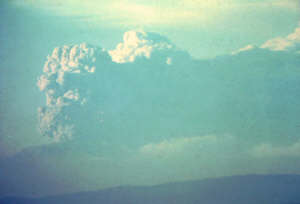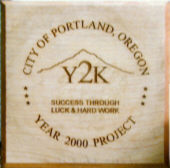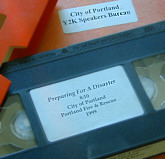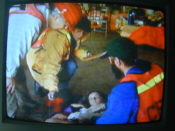|
for NET refresher page |
 |
for SW Portland NET activities |
|
|
|
for NET refresher page |
 |
for SW Portland NET activities |
| When a catastrophic earthquake
or other major natural disaster strikes, citizens naturally emerge to do
the initial search, rescue, and first aid in their own neighborhoods.
"Survival," "self-help," and "mutual aid" are all terms used to describe
the essential volunteer efforts to cope in the aftermath of a disaster.
Since such voluntarism inevitably takes place, it makes good sense
to maximize volunteer through formal training and preparation.
We also know that a catastrophic event will severely restrict and overwhelm the City's response resources, leaving many individuals and neighborhoods cut off from outside support. Households and neighborhoods need to be prepared to rely on their own resources for food, water, first aid and shelter during the 72 hours immediately following the earthquake. The ability of individuals and neighborhoods to fend for themselves during this time will be critical to their survival and recovery. The Loma Prieta or "World Series" earthquake in 1989 and the Northridge earthquake in January 1994 both demonstrated the importance of civilian volunteers during a disaster. Following the Northridge earthquake, for example, 80% of the area affected by the earthquake was managed by citizens trained in emergency response. They put out fires and provided search, rescue and medical services to save lives and property in their own communities... From
the introduction to the Portland NET Program Training Manual
|
|
Visit the
and links to
|
To a geologist, earthquakes
and volcanos are active
if they slip or erupt
every few hundred years!
To the
rest of us, if something hasn't happened in the past several weeks or months,
we feel
we can forget it!
| We have
sat for years and years at the bases of volcanos that we perceived
to be "extinct." Mt St. Helens was one of those.
... geologists have always told us that Mt St. Helens is as far from "extinct" as possible, that it is a very active volcano. But we watched it year in, year out, a decade here, a decade there. Nothing happened. We didn't believe the evidence the geologists saw—in time scales we barely perceive. We were blind to their logic. Then... |

Mt St Helens — May 19, 1980 elev May 17: 9677' — elev May 19: 8364' |
| Our perceptions
of time and probability don't always serve us well. As the year 2000
approached, many people saw near certain disaster approaching.
The city of Portland saw opportunity instead. After consulting with those in the know, the City determined that the odds of really serious trouble was pretty low. But the public was paying attention. The public was keenly aware that emergencies could happen. And Portland has a pretty good emergency response system. |
 |
"...we think there will be few (if any) disruptions related to the Y2K bug. |

 |
| "...we commonly have
temporary winter disruptions from ice or windstorms. And people in
the Northwest can't ignore the fact that a major earthquake is predicted
for our region.
"In any emergency, every household that is prepared for 3-7 days service disruption is an asset to the community. Households that are not prepared will need help from the rest of us. If you are prepared, the community can focus on helping people in critical need." from
Y2K Speakers Bureau presentation notes
|
Neither complacency nor paranoia
is an effective response to the world around us.
Survival rests on good perceptions
of the world of now,
rich knowledge of the world as
it has been,
well-developed skills of interpreting
the complexities,
followed by skillful, well-timed
action.
That's life!
"Nature is full of traps for the beast that cannot learn."